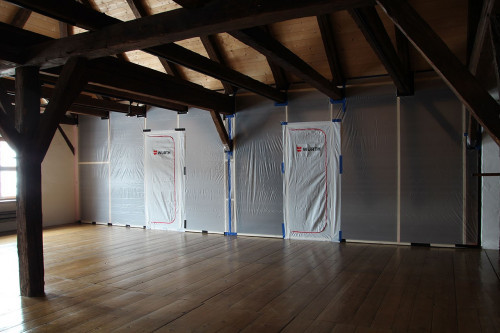There are around 3 million buildings in Germany that are potentially contaminated with the wood preservatives lindane and pentachlorophenol (PCP). Existing solutions for minimizing pollution have a negative impact on the preservation of existing buildings from a resource, energy and heritage conservation perspective and can result in high costs.
The novel approach of the CycloPlasma project uses a combination of innovative adsorber material on the wood surface and room air purifiers based on plasma technology to remediate contaminated wooden structures, treating both the wood and the contaminated interior spaces in a sustainable, residue-free and non-hazardous way. The CycloPlasma process is a completely new method for the restoration and modernization of historic buildings.
Initial laboratory tests have been carried out and are very promising. The next step will be practical testing in a real building. A contaminated building on the site of the project partner "Freilichtmuseum Glentleiten" has already been identified as the object of investigation. Now four different applications will be tested and evaluated over the summer months.
The project is funded by the Fraunhofer Future Foundation.



